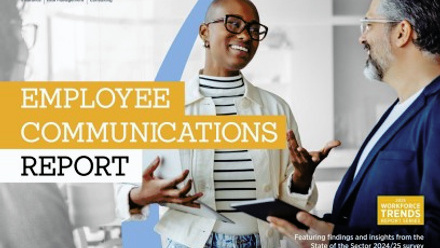Five ways to give your financial wellbeing programme the focus it deserves

‘Employee wellbeing’ has been the industry buzz word for some time, and encouragingly, we are seeing more employers beginning to challenge their thinking around what a true wellness strategy should include. It is hardly surprising however, that financial wellbeing remains to be the neglected child in so many wellbeing strategies, especially when a recent government address to the nation referred to wellbeing as just physical, mental and social!
Sadly, there is an abundance of statistics to show us that stress (aka the silent killer) is the main cause of workplace absence, reduction in productivity, engagement and ultimately the business’s bottom line. The single biggest cause of stress is money worries, with 94% of employees admitting that they worry about money, and an alarming 77% stating that these worries impact them at work, according to findings from our Financial Wellbeing Index 2019. In its simplest form, we must urgently address what keeps our employees awake at night.
Our recent Changing Trends of Financial Wellbeing research (2020) shows that just over half of workers in large businesses say that they felt financially prepared for the coronavirus crisis, with 20% feeling unprepared. However, 50% of employees now have plans to enhance their financial preparedness, with around a quarter (24%) already having made changes and a comparable proportion (26%) looking to make changes in the future.
Whilst we continue to support our most valuable asset – our people – through this pandemic, we have a unique opportunity to use the insight gained, and allow ourselves some thinking time around our approach to the wellbeing of our people. In turn, this will enable action, where necessary, to ensure that financial education is given as much focus as that of physical, emotional and social wellbeing to achieve a holistic approach moving forward.
To achieve maximum success, a financial education programme must be inclusive, accessible and multi-channel in both its communication method and learning styles.
An effective financial wellbeing programme can be measured against the following five key attributes:
1. Diagnostic tool
Enabling employees to assess their own financial health, as well as supporting at employer level the areas of key risk, and employee groups who need specific help.
2. End to end approach
Wellbeing cannot improve without a call to action. It is essential that a financial education programme not only helps employees to identify their needs, but also provides a solution when required.
3. Inclusive and personalised
There is no such thing as ‘one size fits all’, so an effective programme should be tailored to support career stages, lifestyle events and topic-based needs. The use of push communications as part of the communication strategy proves particularly successful in driving engagement.
4. Multi-media delivery
As the current environment proves, supporting employees remotely is now essential. Providing access to financial education 24/7 through a variety of different delivery mediums will help to drive engagement, but it must also be supported with a communication toolkit to promote the benefit, and increase engagement levels.
5. MI and periodic reporting
Measuring the ROI of a wellbeing strategy can be challenging, however working with a provider that measures the effectiveness of the programme with quantitative and qualitative data will help demonstrate the ROI of the programme.
This article is provided by Close Brothers.
Supplied by REBA Associate Member, Close Brothers
Close Brothers has been providing financial education services to employees of some of the UK's best known organisations for over 50 years.







